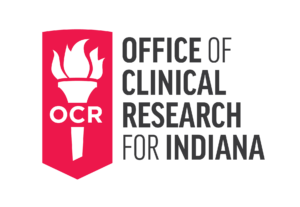Clinical Research
Supporting clinical research across the state is an integral part of the Indiana CTSI. It’s in our name.
Propel your study forward and improve human health using the best practices and expertise in patient care. Whether you are putting your project concept together, designing a recruitment strategy, or ready to open a clinical trial, we have services and staff to help you advance.
Advance Your Project
-
Gain Access to Clinical Research Centers
Clinic space, skilled nursing staff, and lab and nutrition services for both inpatient or outpatient visits at our clinical research centers in Indianapolis, West Lafayette, and Bloomington.
-
Start Strong With PRIMED for Success
Comprehensive consultation service designed to help researchers move newly funded protocols into action more quickly.

Conduct safe, compliant and successful studies with help from the OCR.
More Connections at the Indiana CTSI
-
Recruitment Services
Consultations and resources for your recruitment needs.
-
Research Jam
Human-centered design focuses on creating your recruitment materials in collaboration with you.
-
Indiana Biobank
Collects, stores, and distributes specimens to aid in discovery research in a multitude of therapeutic areas.
-
Enterprise Clinical Research Organization (ECRO)
Engage registered nurses who understand clinical and administrative aspects of research trials.
-
All IN for Health
Find volunteers for your clinical study or trial.
